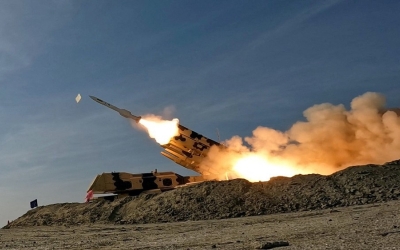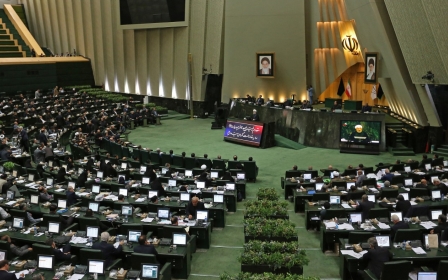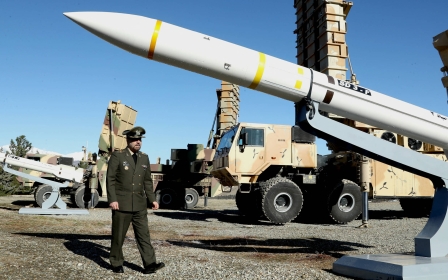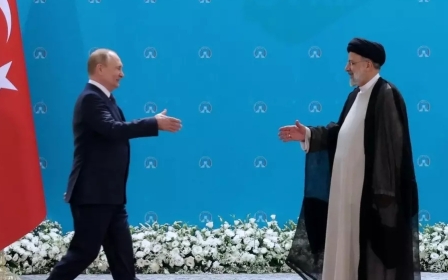How will Iran respond to Israel's attack on its embassy in Damascus?
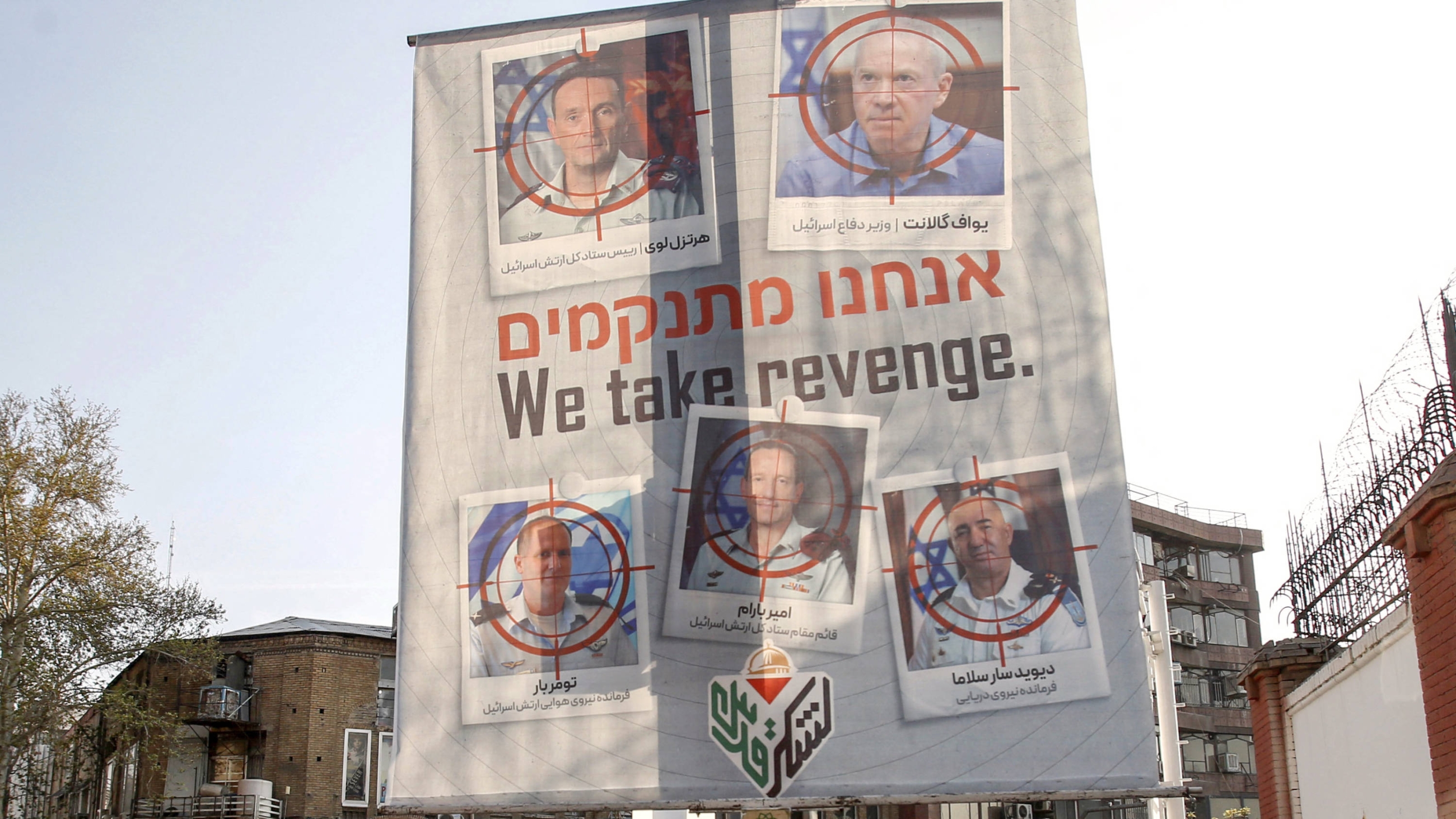
An Israeli attack on the Iranian embassy in Syria has escalated tensions to unprecedented levels, increasing already high concerns about a potential regional conflict between Iran and Israel.
While Israel has previously targeted and assassinated Iranian generals in Syria within informal compounds, this time it has taken the covert conflict into overt warfare with Iran by striking the embassy, killing commander Mohammad Reza Zahedi and other senior members of the Islamic Revolutionary Guard Corps (IRGC).
Iran’s Supreme Leader Ayatollah Ali Khamenei has vowed a decisive retaliation, warning Israel that it will regret the attack.
Iran's approach in confronting Israel's aggression has been characterised by restraint, until now. However, Tehran is now facing both increasing domestic pressure to respond, given the significance of the strike, and the dilemma of how to retaliate without risking an all-out war with Israel and yet maintaining its image of deterrence.
"Iran has thus far refrained from direct retaliation, fearing it would escalate into a broader conflict involving the US, precisely what Tel Aviv desires. Iran is cognisant of this and is wary of falling into [Israeli Prime Minister] Benjamin Netanyahu's trap," a reformist analyst told Middle East Eye, on condition of anonymity.
Stay informed with MEE's newsletters
Sign up to get the latest alerts, insights and analysis, starting with Turkey Unpacked
"Meanwhile, Tehran's deterrent capabilities have been undermined, and the support base of the Islamic Republic among the religious class has been eroded, as they anticipated a direct response to Israel, which has not materialised."
Simultaneously, the Islamic Republic's support base is expressing frustration with the perceived lack of action under the so-called "strategic patience" strategy.
"People in the coming years may think of your strategic patience as being afraid," social media user Fatemeh Sabet wrote on X, formerly Twitter, in one example of the frustration expressed by the Iranian public.
Meanwhile, Iran's state TV, which falls under the control of the supreme leader, has emphasised repeatedly that the embassy attack constitutes an assault on Iranian soil and has advocated for a military response.
It has also invited various experts to call for a military response.
"This departure from the norm of downplaying such incidents is perplexing. It appears to be a deliberate shift in strategy, possibly influenced by pressure from ultra-conservatives urging engagement in the Gaza conflict," a reformist daily editor told MEE, on condition of anonymity.
"This may be a plan, too, as the conservatives have been pressuring the leader to enter the Gaza war since the first day. They even wrote a letter to Khamenei in order to convince him."
It is worth noting that the chairman of Iran's state TV, Payman Jebelli, and his deputy, Vahid Jalili, represent a radical faction critical of President Ebrahim Raisi's engagement with the US to revive the 2015 nuclear deal.
Utilising regional proxies
While some in Iran are calling for a decisive response equal in magnitude to the Israeli attack on its embassy, others from various political perspectives believe that Iran will not deviate from its pattern of a measured approach.
"Israel may seek a favourable military reaction from Iran, but as seen during the war in Gaza, Iran will act cautiously. The response will deny Israel any pretext for further military escalation," Jafar Ghanadbashi, a foreign policy expert aligned with conservatives, was quoted as saying by the Ham-Mihan daily.
'Tehran is likely to utilise proxies to target Israeli assets, perhaps in the Red Sea'
- Former Iranian diplomat
Meanwhile, a former Iranian diplomat in the Middle East believes that Tehran will not directly target Israeli embassies in other countries, for example Azerbaijan.
The diplomat, who wished to remain anonymous, also doubted Iran's willingness to retaliate from Syrian territory, given that Damascus is looking to avoid a full-scale war with Israel.
"I doubt Iran will opt for direct retaliation," the former diplomat said. "Two decades ago, despite the Taliban's killing of Iranian diplomats in Afghanistan, the leader refrained from initiating war, instead cooperating with the US to overthrow the Taliban.
"Therefore, Tehran is likely to utilise proxies to target Israeli assets, perhaps in the Red Sea, with more significant implications than recent incidents."
Since the start of the war on Gaza in October last year, Iran’s proxies have increased attacks on Israeli and American targets, with near-daily cross-border exchanges of fire between Lebanon's Hezbollah and Israel, and attacks by Yemen's Houthi rebels on Red Sea shipping.
Galvanising national unity
An Iranian foreign policy expert, who regularly writes for Iran's newspapers, said that Israel is exploiting internal divisions in Iran, the country's legitimacy crisis following the 2022 anti-establishment protests, and deteriorating economic conditions.
With the threat of a regional war looming, the depreciation of Iran's currency has accelerated once again. Following the attack on its embassy, the rial went from trading at 615,000 to the dollar to 630,000 on the black market, heaping further pressure on Iran's fragile economy.
'Israel understands Iran's current limitations and is leveraging them to bolster its deterrence while tarnishing Iran's reputation'
- Iranian foreign policy expert
Speaking to MEE on condition of anonymity, the foreign policy expert highlighted the erosion of Iran's deterrence, owing to waning political support among its people, which undermines its ability to respond decisively.
The expert, however, added that "an attack on Iranian soil could galvanise national unity and alter the dynamics significantly.
"Israel understands Iran's current limitations and is leveraging them to bolster its deterrence while tarnishing Iran's reputation," he said.
"This affords Israel a win-win scenario: either provoking Iran into war, diverting attention from atrocities in Gaza, drawing the US to the war, as well as guaranteeing Netanyahu's survival, or weakening Iran's deterrence and targeting top Iranian masterminds of the Axis of Resistance without risking direct confrontation."
Shortly after the embassy attack, the US communicated directly to Iran that it had "no involvement" and no prior knowledge of the strike.
US officials have said they had not yet picked up intelligence suggesting Iran-backed groups were looking to strike its bases in the region. However, given that Iran has long maintained that the United States bears responsibility for Israel's actions, the US is on high alert for any potential attacks.
Washington has warned Tehran against attacking its forces in Syria and Iraq in retaliation for the Israeli attack, as it has frequently done in the past, mainly through its regional proxies.
Middle East Eye delivers independent and unrivalled coverage and analysis of the Middle East, North Africa and beyond. To learn more about republishing this content and the associated fees, please fill out this form. More about MEE can be found here.


